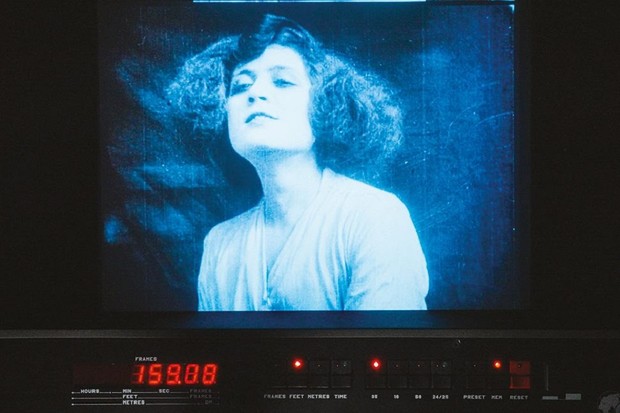PELÍCULAS / CRÍTICAS Italia / Estados Unidos
Crítica: Elvira Notari. Oltre il silenzio
por Vittoria Scarpa
- El documental de Valerio Ciriaci rompe el silencio alrededor de la primera directora de la historia del cine italiano, y explora su impacto en el presente

Este artículo está disponible en inglés.
The first woman director in the history of Italian cinema was called Elvira Notari. She shot around 60 feature films and over a hundred shorts. But all that remains of her work are three long films, two short documentaries and various other film fragments: 163 minutes in all. Why this well-rounded director – who was also a screenwriter and a producer of films believed to be forebearers of Neorealism – fell into oblivion is the focus of Valerio Ciriaci’s movie, Elvira Notari: Beyond Silence, a compelling documentary (released in Italian cinemas on 13 October via Luce Cinecittà, following its premiere at the 82nd Venice Film Festival within the Venice Classics – Documentaries about Cinema section) blending interviews with historians, film experts and distant relations with precious archive footage and clips from her films, to reconstruct gradually and with a dash of suspense, the road walked by this woman whose life we know very little about but who, in recent years, has inspired new projects by artists, writers, musicians and photographers, who have picked up on her legacy and helped to pull her out of the mysterious black hole into which she withdrew.
Elvira Notari didn’t leave any writing behind, not one trace of her thoughts, and there are only two photos of her in the world: one with her husband, Nicola, with whom she founded the production company Dora Film (also active in the US), and another of her in old age: she died at 71 years of age, alone and far from her family, having retired from the scene 16 years earlier. Her story begins in the early twentieth century and intersects with that of Neapolitan silent film, “a lesser kind of cinema” within a film genre which was already considered minor - Italian silent film – but which was incredibly prolific years before the arrival of the more celebrated Neorealism. The genre was rediscovered from the 1970s onwards thanks to the hard work of scholars, and Notari played a leading role in this field. Her films speak of difficult romantic relationships (such as ‘A Santanotte, 1922), women who dream of freedom and leave their partners, but for whom inevitably things end badly – in other words, they’re killed. They’re films which draw on Naples’ folklore and which depict scenes from everyday life; popular, passion-fuelled dramas where “actors show us what they’re made of” and where women are strong and independent. They’re also extraordinary historical documentaries, and Italian immigrants in America flocked to cinemas wherever Dora Film reels were playing – in fact, they commissioned more of them – because they helped them reconnect with their roots.
Fascist censorship, the advent of sound, and her role as a mother which had started to constrain her, were the probable causes of Elvira Notari’s sudden disappearance, having decided to leave Naples and vanish in 1930. Mussolini’s regime didn’t tolerate depictions of reality and marginalised classes with their corollary of misery, illegality and violence, which Notari’s cinema actually exposed, and nor did it tolerate dialect. It subsequently stopped approving films which offended Naples’ dignity and which were “lacking in artistic meaning” (which is laughable, since this is far from the truth in Notari’s case). But Ciriaci (whose works include If Only I Were That Warrior, which scooped the 2016 Golden Globe for Best Documentary) breaks the silence surrounding this film pioneer and - thanks to the passionate efforts of those who’ve tracked her down - weaves a thread between the past and the present, and between film experimentation in its infancy and the creation of new expressive forms in the present day.
Elvira Notari: Beyond the Silence was produced by Neapolitan firm Parallelo 41 produzioni, Awen Films (USA) and Luce Cinecittà. First Hand Films are handing world sales.
(Traducción del italiano)
¿Te ha gustado este artículo? Suscríbete a nuestra newsletter y recibe más artículos como este directamente en tu email.


















